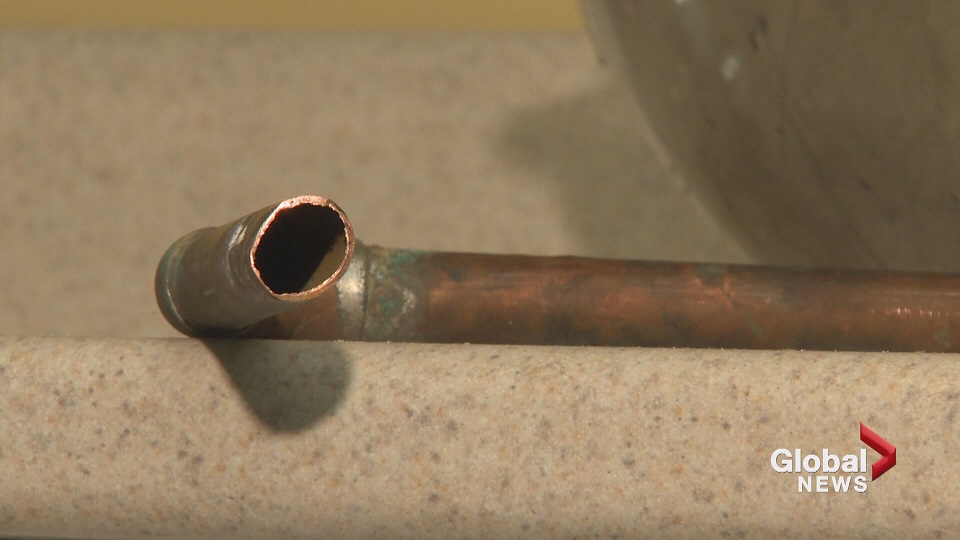Saint John Common Council will be hearing the findings of an investigation into unexpected corrosion and leaking in copper pipes on the city’s west side.

The commissioner of Saint John Water and a representative from CBCL Limited, which conducted the study alongside Dalhousie University’s Centre for Water Resources, will present the report Monday evening.
Residents began noticing and reporting pinhole leaks in early 2018. About four per cent of the 5,400 west Saint John customers reported leaks within a three to four week period.
The incidents began a few months after the city switched that part of town to well water.
The report found that it was likely when the switch from surface to ground water took place, that the “scale existing in the pipes was disrupted before a new scale (based on changed water quality) could be developed.”
The report goes on to say that the disruption meant corroded pipe was exposed and leaks began to occur.

Get weekly health news
It also says that it’s uncommon in Atlantic Canada to switch from an untreated surface water to groundwater. But the communities that did switch “did not experience similar reports of issues.”
After the issue was discovered, a temporary orthophosphate treatment system was installed at the South Bay Water Treatment Facility to help stabilize the existing scale formation on the copper pipes.
The study found that adding orthophosphate was “beneficial for reducing copper release from both mature and new pipe” and it recommends that orthophosphate addition continue until additional testing is finished and sufficient evidence is available which can prove “a reduction in orthophosphate would not introduce corrosion issues or leaks.”
WATCH: Abrupt resignation brings new controversy to quest for drinking water quality in west Saint John

The city has also developed a monitoring program for the distribution system to collect more data.
The study notes that reports of leaking peaked in January 2018 and then dropped off until no leaks were reported after June 2018.








Comments